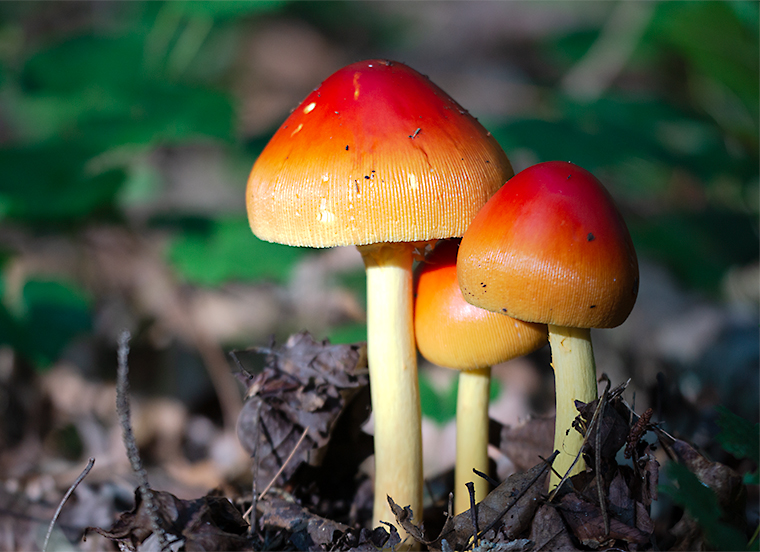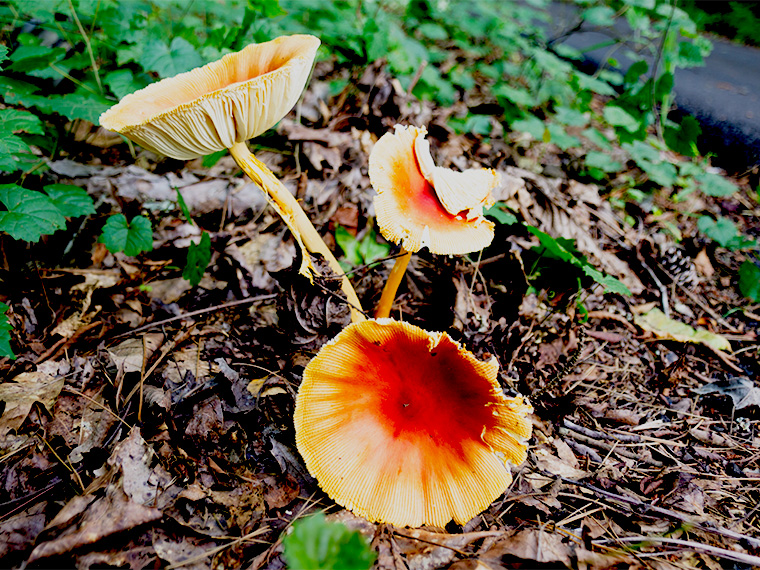
Joyce was walking up to our mailbox when she found these colorful mushrooms right next to the driveway. The largest of these is about six inches tall.

The next photograph above shows the same mushrooms the next day. It has been hot and dry here, so they don’t last long. The gills on the underside of the cap have opened and the spores have presumably been shed, One has to keep your camera handy if you want a photograph of summer mushroom in prime condition.
The common name of these mushrooms is Caesar’s Mushroom. This species, or species closely relate to it, have a wide distribution. They are found in Southern Europe and Northern Africa, and in North America from Canada to Central America. In Europe, they have long been regarded as choice edibles. The common name comes from the story that they were favored by rulers of Rome, hence Caersar’s Mushroom, The scientifc name for the Europeans forms is Amanita caesarea. The North American forms are sufficiently different enough to be named separate species The one pictured here is probably A. jacksonii.and the common name is Jackson’s Slender Caesar or American Slender Caesar.
Caesar’s Mushrooms found in our area are edible, but one must be absolutely sure of identification before consuming one. The genus Amanita has many species, some of which are deadly poisonous. So, unless you have a lot of experience identifying mushrooms, it is best to just admire the beauty of these and leave them alone.
I have written posts about Cesar’s Mushroom before. One of these shows that deer will eat them (https://www.gkochert.com/deer-like-caesars-mushrooms/), and the other post gives an idea of the prodigious number of spores that one of these mushrooms produces (https://www.gkochert.com/spore-power/).
